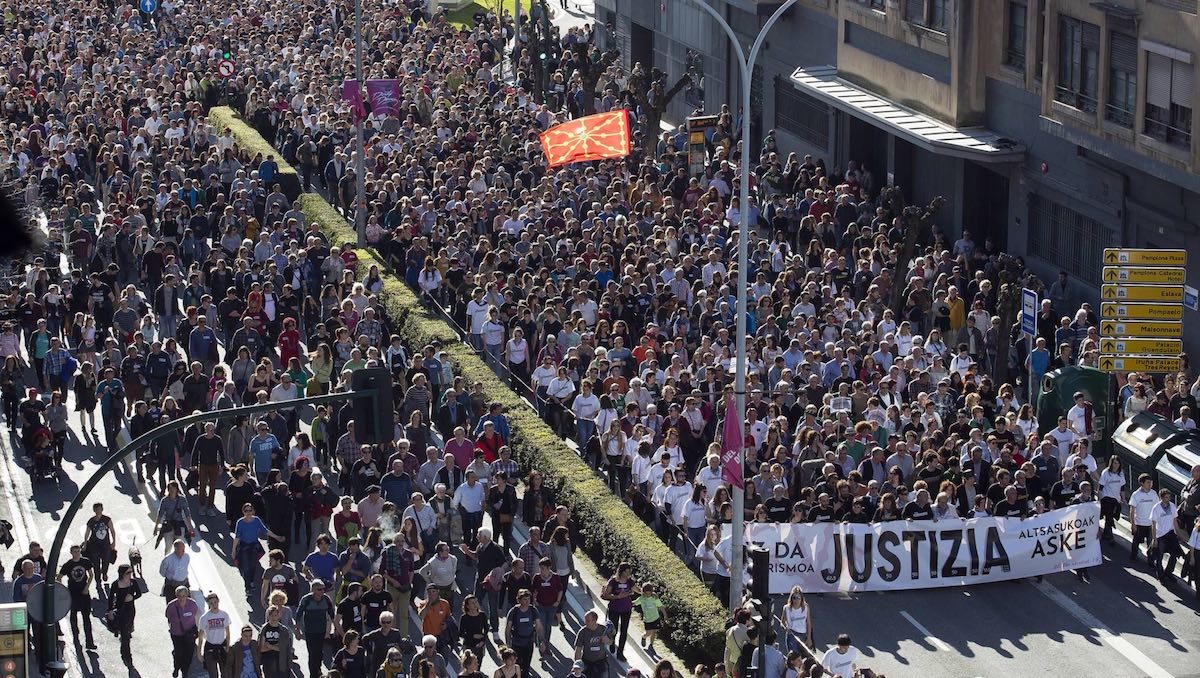This article was translated by John R. Bopp
We had promised ourselves we wouldn’t write about this, but we see the workings of the propaganda machine in defense of the actions occurring in the Kingdom of Spain don’t stop, so we wanted to give an example, a model, of how the image of the Alsasua Case is being transmitted to the world.
Alberto García Marrder is a renown journalist from Honduras. In an interview with him in 2013, he himself gave a thorough review of his career, in which he’s covered many important and historical events around the world. He has also trained many other journalists.
We mention him because he’s just published an opinion article in the Honduran daily El País, which he ought to save and use as an example with his students regarding what a journalist ought not to do when he wants to work with dignity.
This gentleman (because we don’t feel we can call him a journalist, though he’s undoubtedly a good friend of his friends (it’s not for nothing that’s worked in the EFE Agency since the Franco dictatorship)) has managed to accumulate all the lies, half-truths, and omissions that make this case a true media circus and legal shame into just one article.
We’re not going to do an exhaustive analysis of the text, but we have found many baseless claims and that are unworthy of a professional of his caliber.
He assumes that the version of the assaulted is real, and insinuates that the defendants are lying when they say they did not participate in the assault. It must be that he’s unaware that in the Kingdom of Spain, a country that is condemned over and over by the European Union Court of Justice for breaking the law, that defendants are innocent until sentenced. And as we say, even then you have to wait, because in many cases, it’s the EU courts which determine what is the legal truth.
He mixes, with no sense or rigor, the ETA, Basque nationalism, and violence. He presents all “Basque patriots” as part of a movement whose main tool of action, and only reason for being, is cruelty and aggression. We can’t imagine what this gentleman would have written about American patriots if he’d been working for the EFE during the Revolutionary War.
But this, despite its seriousness, is not the gravest issue; that title goes to the poison he throws at the institutions of Navarre. He accuses local and provincial authorities of supporting the accused, just as he accuses the Spanish Left of the same thing.
We can’t imagine he’s writing from such lack of knowledge that he doesn’t know the truth. The impression we get is more that he is consciously and voluntarily distorting reality.
The march, which brought together 50,000 people in a province of just 640,000 inhabitants did not ask for the freedom of the defendants. What they asked for was that they be tried with the criteria of justice and proportionality. Without getting into too much detail, such as the fact that the judge is the wife of a high-ranking Civil Guard official, it’s obvious that the accusations in these legal proceedings exceed any logic, something that even magistrates, institutional representatives, political parties, social organizations, and even Amnesty International defend.
Accusing them of terrorism for a bar fight that ended up with a broken ankle, and asking for sixty years in jail (when they’ve already been behind bars for 500 days without bail), and trying them in a special tribunal… All of this is nonsense, unworthy of the legal system of a democratic country. What they were asking for in that march was not impunity, but that they be tried and judged for what they did, and not for terrorism.
Alberto García Marrder is keeping his promises well and supporting his friends enthusiastically; a true testament to his qualities as a friend. But by misinforming his readers, manipulating reality to coincide with his interests, takes him away from the ethical principles that ought to guide a journalist.
But he needn’t worry; many other journalists around the world have the same problem when they talk about issues related to “bad Basques”, who do not bend to the historical determinism that indicates that they can only be appendices of two states. You know the saying, “Misery loves company”…
El País – 19/4/2018 – Honduras
Alsasua: when intolerance is violent
Examples of intolerance that end with violence and a complicity from those around can be found around the world every day. But there’s one case that has me outraged, and the more I read about it, the greater my stupor.
(Follow) (Automatic translation)
Last Updated on Dec 20, 2020 by About Basque Country





